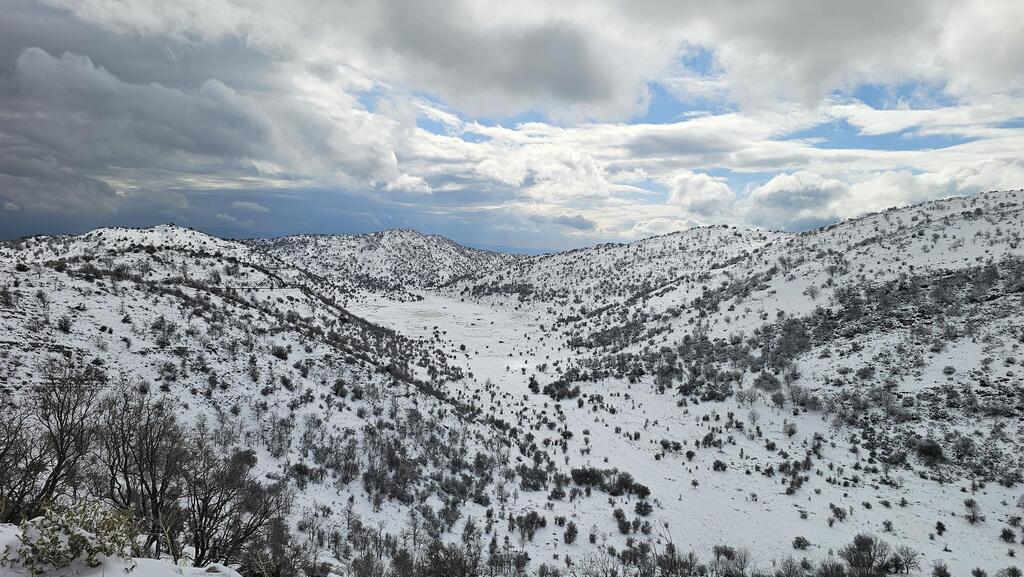Getting your Trinity Audio player ready...
Just a few days ago, rain fell across Israel, bringing heavy showers to areas from the north to the Negev Desert in the south while snow covered the peaks of Mount Hermon. The maximum temperature in Jerusalem last Friday was 48°F, in Haifa it reached 55°F, and in Tel Aviv the temperature was 61°F. But since then, the temperatures began to rise and the forecast for the coming weekend is expected to reach as high as 88°F in Jerusalem, 91°F in Haifa, and 90°F in Tel Aviv. In other parts of the country, they shift could be from 57°F to 104°F.
In an interview with the Ynet studio, Professor Daniel Rosenfeld, an atmospheric sciences expert at the Hebrew University, and Professor Menachem Luria, an emeritus professor in Earth sciences and an expert on the interaction between human environments and the atmosphere, explained the reasons behind the extreme temperature fluctuations in recent days.
"The past year was the hottest year on the meteorological record, and the last ten years have been the hottest in documented history," Rosenfeld said. "Extreme phenomena are becoming more frequent, and the past year recorded the highest number of extreme weather events ever."
He explained that in his view, future climate projections were not encouraging. "This year, we had only half the annual average precipitation, making it potentially the most severe drought year to date," he said. "Long-term forecasts indicate a drop in rainfall and an increase in the frequency and intensity of extreme events. What seems exceptional to us today could become the norm in just a few decades."
Professor Luria said these trends were the result of unavoidable global processes. "The growing demand for energy-intensive products, alongside population growth, is leading to a continuous rise in greenhouse gas emissions," he said. These processes are not linear, which is why we observe fluctuations—sometimes periods of calm, but in the long term, the trend of extremity is clear."
Get the Ynetnews app on your smartphone: Google Play: https://bit.ly/4eJ37pE | Apple App Store: https://bit.ly/3ZL7iNv
"Our ability to stop these processes is very limited. It’s possible that in a few years, we will say goodbye to seasons like 'fall' as we know them. Weather patterns will continue to change drastically, with longer heat waves and extended droughts."
Professor Rosenfeld added that global weather systems were slowing down, causing extreme events—such as heat waves, floods, or droughts—to last longer and have a more severe impact
Is Israel prepared for climate change?
Unlike many other regions in the world that brace for a severe water crisis, Israel is in a relatively good position thanks to its advanced desalination technologies. "Most of our drinking water comes from desalination, so the shortage will mainly affect farmers," Luria explained. However, globally, the situation is different: "In some areas, temperatures exceeding 122° F will make them uninhabitable, leading to mass migrations.
Both experts agree that the extremity in weather patterns is a phenomenon that will continue to intensify, and the processes cannot be entirely stopped. "The situation will only worsen," Luria concluded. "Therefore, we must prepare for even more severe climate changes in the near future."



